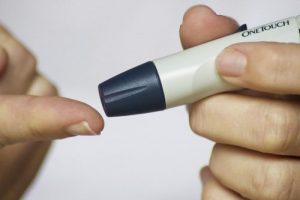- Home
- Editorial
- News
- Practice Guidelines
- Anesthesiology Guidelines
- Cancer Guidelines
- Cardiac Sciences Guidelines
- Critical Care Guidelines
- Dentistry Guidelines
- Dermatology Guidelines
- Diabetes and Endo Guidelines
- Diagnostics Guidelines
- ENT Guidelines
- Featured Practice Guidelines
- Gastroenterology Guidelines
- Geriatrics Guidelines
- Medicine Guidelines
- Nephrology Guidelines
- Neurosciences Guidelines
- Obs and Gynae Guidelines
- Ophthalmology Guidelines
- Orthopaedics Guidelines
- Paediatrics Guidelines
- Psychiatry Guidelines
- Pulmonology Guidelines
- Radiology Guidelines
- Surgery Guidelines
- Urology Guidelines
Gay,Bisexual women more at risk of T2 diabetes : Study

Heather L. Corlis from San Diego State University's Graduate School of Public Health in California and colleagues conducted a study and found that lesbian and bisexual women could be at higher risk of developing type 2 diabetes. This new 24-year study reports that lesbian and bisexual women were 27% more likely to develop type 2 diabetes.
n the past studies have implicated lifestyle choices, eating habits genetics, family history, and environment as risk factors, for type 2 diabetes. But this study raises an interesting finding regarding sexuality and its relationship with type 2.
But the findings indicate only an association, and nothing causal thereby meaning further research will be required to investigate this link in greater detail.
The study involved an analysis of 94,250 women who had taken part in the Nurses' Health Study II out of which a total of 1,267 were identified as lesbian or bisexual. All the women were clinically reviewed for type 2 diabetes every two years between 1989-2013.
The researchers found that Gay and bisexual women tended to develop type 2 diabetes earlier than heterosexual women and having a higher BMI mediated these findings.
In addition to this stress also was hypothesized as a salient factor as to why the 27% increased risk may have occurred. The researchers opined that lesbian and bisexual women may have had stress related to discrimination which could negatively impact these women's health and increasing health risks.
They concluded that indicate that LB women develop type 2 diabetes at younger ages than heterosexual women. Higher BMI in LB women is an important contributor to this disparity. "Although it is important to address behavioural factors such as physical activity, sedentary behaviour, and dietary intake, focusing on these factors alone may not be sufficient to eliminate lesbian and bisexual women's disparities in chronic disease, They said.
"Public health and clinical efforts to prevent, detect, and manage obesity and type 2 diabetes among LB women are warranted."
The study has been published in Journal Diabetes Care.
For further reference log on to: https://doi.org/10.2337/dc17-2656

Disclaimer: This site is primarily intended for healthcare professionals. Any content/information on this website does not replace the advice of medical and/or health professionals and should not be construed as medical/diagnostic advice/endorsement or prescription. Use of this site is subject to our terms of use, privacy policy, advertisement policy. © 2020 Minerva Medical Treatment Pvt Ltd